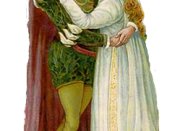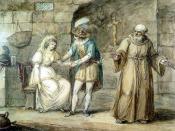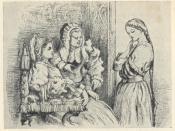"Wisely and slow: they stumble that run fast"(Pg 91, Line 97) those words spoken by Friar Laurence. Words we must listen too. Impulsiveness leads to downfall, and therefore people must strike a balance between being impulsive, and being pragmatic. Time and time again Shakespeare showed us how impulsiveness leads to tragedy.
First off, Capulet was a prudent, well-balanced person most of the time. When Paris told Capulet that he wanted to marry Juliet, Capulet said "Let two more summers wither in their pride/Ere we may think her ripe to be a bride"(Pg 27, Lines 10-11) because he wanted to look out for Juliet and wanted to make sure she was ready. Though he did tell him to "woo her, gentle Paris, get her heart;/My will to her consent is but a part" because he was still not passing up this opportunity for his daughter. Capulet was also practical when Tybalt spotted Romeo during the Capulet feast, Tybalt wanted to do the impulsive thing and kill Romeo, but Capulet thought for a second about the consequences.
Tybalt said "I'll not endure him" and Capulet told him emphatically "he shall be endur'd"(pg. 57, Lines 77 & 78). In this scene Capulet prevented a huge Montegue and Capulet confrontation by thinking first and not doing the impulsive suggested by Tybalt. Through thinking these actions through, problems were prevented.
However, Capulet was at times, a very rash person, and that lead to much of the misfortune in this play. Hours after Romeo killed Tybalt, Capulet acted on haste in Act III, Scene 4 and told Paris "I will make a desperate tender/Of my child's love: I think she will be rul'd/In all respects by me; nay more, I doubt it not....And bid her, mark you on me, on Wednesday next-" and then continued...


